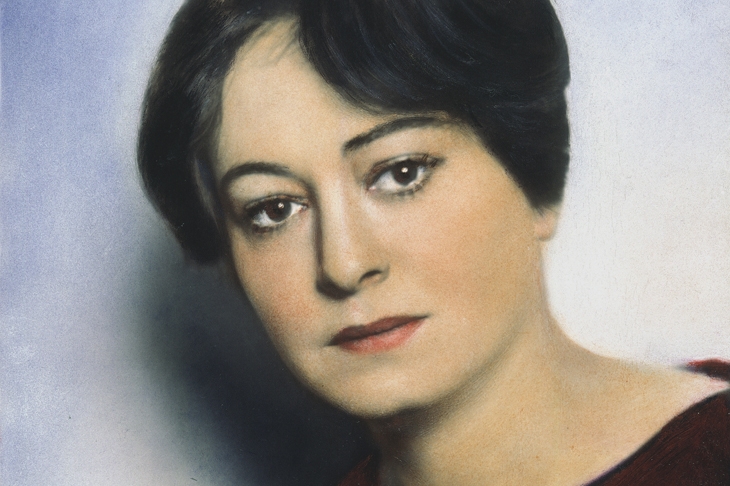From Aphra Behn to Virginia Woolf, women who make a living by their pens have frequently felt the need to announce their singularity; to be, as Mary Wollstonecraft announced, ‘the first of a new genus’. Each of the women in Michelle Dean’s survey of mostly American essayists, reviewers and novelists had to defend her right to debate, critique and observe. The lives of Sontag, Arendt, Parker, West, Didion, Ephron and others are woven into a thick braid running the length of the 20th century and into ours.
It’s not quite a group biography, but more a study of how their lives and work dovetailed with each other and with the major political and cultural movements of the era. Dean begins with Dorothy Parker, poet, short story writer, acidic reviewer and queen of the Algonquin Round Table (Dean demythologises this, as indeed did Parker herself). As befits a trailblazer, she cuts an isolated figure here, inspiring the rest but not otherwise linked with them. The young Rebecca West called her ‘a sublime artist’, which takes us to Dean’s second chapter — a survey of West’s work. In the sole excursion to a writer of colour, her third compares West’s coverage of a lynching trial in South Carolina un-favourably with Zora Neale Hurston’s handling of the same material. As Dean admits in her foreword, her subjects ‘came from similar backgrounds: white, often Jewish, and middle-class’. Hurston’s work is just as significant as theirs, but ‘racism kept her writings at the margin’.
With the arrival of Hannah Arendt, the braiding device becomes more secure. Arendt became friends with the novelist Mary McCarthy and provided a publicity puff for a new young writer, Susan Sontag, then a debut novelist but soon to become a heavyweight cultural commentator. Sontag was sniffy about the bestselling McCarthy, while Pauline Kael, later to become the film critic of the New Yorker, was initially at least a fan. Kael met the filmwriter John Gregory Dunne at a party (quite a lot of the drama here takes place at parties) and asked to meet his wife, Joan Didion, who also at one point reviewed movies.
Dean’s personality sketches are succinct and vivid; one of her beefs is the way that the women’s personalities (and looks) were judged as much as their opinions and prose styles. And not just by men; a female reviewer in the Washington Post wrote: ‘If there were any justice in this world, Susan Sontag would be ugly, or at least plain.’ Norman Mailer explained that McCarthy was ‘simply not a good enough woman to write a major novel; not yet’. (The book has some marvellous examples of mansplaining.) Even praise was gendered: Joan Didion wielded ‘a concealed hatpin style’, according to a male reviewer.
There’s not much sisterly solidarity on show, understandably perhaps when the women were mostly dependent on the goodwill of male editors; keen writers are always more numerous than journalistic commissions. Some of Dean’s subjects made their names by trashing each others’ work. Their attitude to feminism varied widely; Arendt thought it was simply trivial (it’s to be remembered that she attended the Eichmann trial in Jerusalem and wrote The Origins of Totalitarianism in response); Didion was sceptical, Sontag was an avowed but not uncritical feminist who clashed with key figures such as Adrienne Rich.
One of the most poignant aspects of the book is its glimpse of a vanished world where book reviews really mattered. Many of the spats featured here were given thrilling amounts of space in now-defunct magazines. McCarthy even wrote a series reviewing the book reviewers of America under the heading ‘Our Critics, Right or Wrong’. According to Dean, it scored ‘zingers on every critic in the land’. It’s hard to imagine readers caring about that now.
In Wollstonecraft’s day, sharpness and femininity were seen as radically incompatible; she was dubbed ‘a hyena in petticoats’. Although all the writers here faced struggles to be taken seriously alongside male peers, by and large they managed to write without compromise, stoically or insouciantly taking the consequences, whether censure or lawsuits. The date at which they stop writing and fall silent is a much more definitive end point than mere death. The lack of a plate section is unfortunate, but perhaps reflects Dean’s determination to judge them by their words, not their faces.






Comments